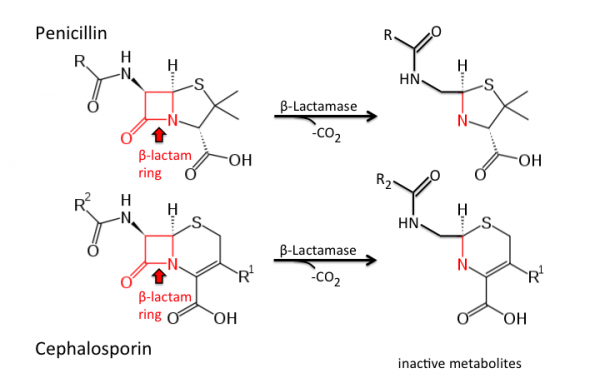Page 9 - Clinical
-
Posted: March 23, 2018Read More
Kombucha, an effervescent beverage originating in Asia, has received much attention lately in the neutraceutical and alternative health industries as being an anti-carcinogenic, fermented tea. It is believed to help regulate the gut microbiome, aid in metabolism and cell proliferation, increase detoxification, and help protect the liver.
Kombucha originated in China over 2,000 years ago and...
-
Posted: March 16, 2018Read More
Recent research suggests that Alzheimer’s could be due to amyloid plaque forming around an infectious agent.Alzheimer’s disease is a progressive disease that affects more than three million people each year. There are limited treatment options and no cure. While it generally affects those over the age of 60, it has been diagnosed in people... -
Posted: March 09, 2018Read More
Dietary sugar and Clostridium difficile are not usually two things you hear of in one sentence, but it was recently discovered that a sugar additive, trehalose, may encourage the virulence of Clostridium difficile.
The supporting study titled “Dietary trehalose enhances virulence of epidemic Clostridium difficile” was very recently published in January 2018... -
Posted: March 02, 2018Read More
According to the American Cancer Society, “colorectal cancer is the third most common cancer diagnosed in both men and women in the United States, excluding skin cancers” and is responsible for over 50,000 deaths annually.
In a recent newspaper article published in New York Times, “Gut Microbes Combine to Cause Colon Cancer, Study Suggests” by Gina Kolata, researchers have found a... -
Posted: February 12, 2018Read More
Antibiotic development has had its challenges recently; and while the concern of drug-resistant Gram-negative has been vastly described since the past couple of decades, there is a growing light at the end of the tunnel with the recent approval of the broad spectrum antimicrobials between 2015-17. Even more encouraging is the potential regulatory filing and approval of several antimicrobial candidates...
-
Posted: January 26, 2018Read More

Fluoroquinolones have been the staple of antimicrobial therapy since the launch of the flagship representative "Ciprofloxacin" by Bayer in the early 1980s.Fluoroquinolones have a fluorine atom attached to the core quinolone molecular ring and this modification results in a class of broad-spectrum bactericidal agents that show increased stability and potency against both Gram...
-
Posted: January 12, 2018Read More
Think of your daily morning routine. You wake up, shower, get dressed, eat, gather your belongings, and make your way out the door to work or wherever the day takes you. Most everyone has a mental checklist of the items we can’t forget in order to function properly throughout the day. I can’t speak for everyone, but most of our lists follow these general guidelines; “Phone, keys, wallet, beverage...
-
Posted: December 15, 2017Read More
The Happiest Place on Earth just made news in November for all the wrong reasons. Disneyland recently shut down two contaminated cooling towers after health officials discovered the towers had elevated levels of Legionella bacteria.
Eleven separate cases of Legionnaires’ disease have surfaced in the Anaheim area. The victims were infected sometime between late August and October. As...
-
Posted: December 08, 2017Read More
On September 1, 2017, San Diego County officials declared a state of emergency due to a major outbreak of Hepatitis A in the region.
Since November 2016, 544 infections and 20 deaths have been reported. In comparison, for the last five years, San Diego County has recorded only 28 cases annually on average. Among the recent outbreak of reported cases, the majority have been homeless individuals...
-
Posted: December 01, 2017Read More
In an attempt to reduce the inappropriate use of antibiotics, researchers at the University of Rochester have developed a tool that physicians can use to distinguish between a bacterial or viral infection in a patient that is suffering from an infection. Antibiotics are useless in treating viral infections; sadly, bacterial resistance is stimulated by the indiscriminate and often unnecessary use of...
-
Posted: November 24, 2017Read MoreOctober is National Breast Cancer Awareness month, and while breast cancer is the most prevalent cancer among women worldwide, more than half the women who develop this cancer have no known risk factors. The risk factors that are known are not always good predictors of developing breast cancer, including those who are genetically predisposed and those who are exposed to known environmental risk factors...
-
Posted: November 17, 2017Read More
In September 1620, a group of separatists seeking religious freedom of worship as well as bountiful land sailed from Plymouth, England for the New World. After a 66 day journey, the Mayflower dropped anchor off the coast of Cape Cod, nearly 200 miles north of their intended destination. They of course, in true European fashion, named their new colony Plymouth after their departing port.
The...
-
Posted: November 10, 2017Read More
As we progress through the 21st Century, the looming threat of antimicrobial resistance and the urgent call for action have been expressed by the medical community worldwide. Bacterial resistance mechanisms are becoming increasingly more common, especially to broad spectrum beta (β)-lactam antibiotics which include penicllins, cephalosporins, monobactams, and carbapenems.
 ...
... -
Posted: October 27, 2017Read MoreThe classic bulls-eye rash is one that most people are warned to watch out for and are told to seek medical assistance if it appears on the skin. This rash is called erythema migrans and may occur from infection with a bacterium of the genus Borrelia. These bacteria are spirochetes and have a flagellum that aids in mobility. Borrelia burgdorferi is the most common species associated...
-
Posted: October 13, 2017Read MoreAmidst the myriad of effects we've found our gut microbiome can have on our daily lives, a recent study finds that it may also affect behaviors in our offspring, even long after they've exited the womb.Two newer studies using rats published by MIT and the University of Massachusetts Medical School explored the idea that the microbial population of the mother's gut can result...





















